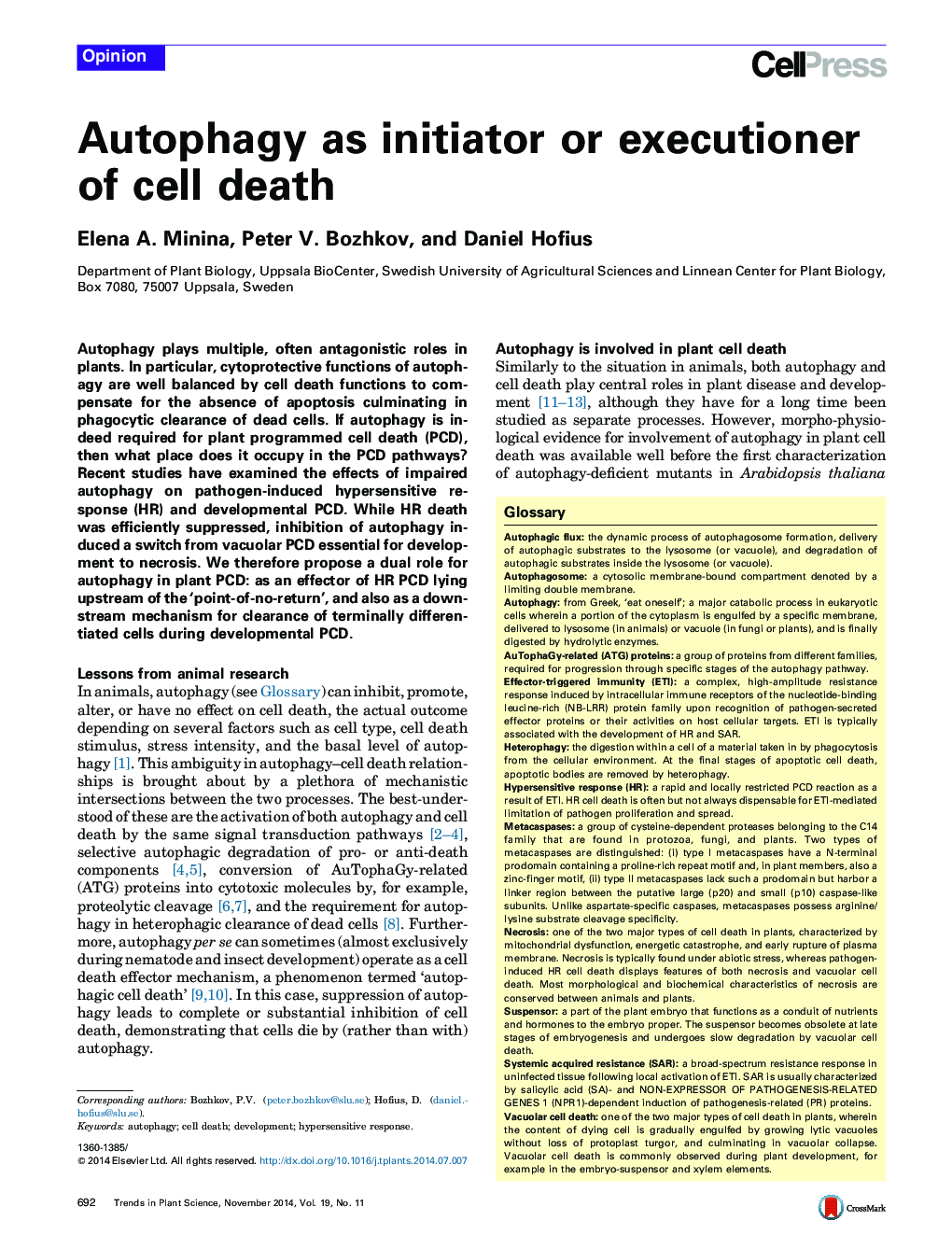| Article ID | Journal | Published Year | Pages | File Type |
|---|---|---|---|---|
| 2826092 | Trends in Plant Science | 2014 | 6 Pages |
•Autophagy can suppress, initiate, or execute cell death depending on the biological context.•Autophagy is an initiator of localized, hypersensitive response-associated cell death upon pathogen infection.•Autophagy executes ‘formative’ vacuolar cell death and prevents ‘destructive’ necrosis in terminally differentiated cells.•Homeostatic and anti-aging functions of autophagy complicate the dissection of its distinct roles in cell death.
Autophagy plays multiple, often antagonistic roles in plants. In particular, cytoprotective functions of autophagy are well balanced by cell death functions to compensate for the absence of apoptosis culminating in phagocytic clearance of dead cells. If autophagy is indeed required for plant programmed cell death (PCD), then what place does it occupy in the PCD pathways? Recent studies have examined the effects of impaired autophagy on pathogen-induced hypersensitive response (HR) and developmental PCD. While HR death was efficiently suppressed, inhibition of autophagy induced a switch from vacuolar PCD essential for development to necrosis. We therefore propose a dual role for autophagy in plant PCD: as an effector of HR PCD lying upstream of the ‘point-of-no-return’, and also as a downstream mechanism for clearance of terminally differentiated cells during developmental PCD.
